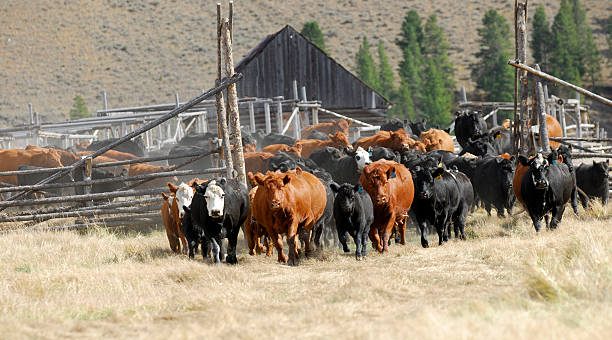DENVER, CO – In an opening brief filed this week, cattle producers are asking the Tenth Circuit Court of Appeals to reverse a lower court’s dismissal of their case involving the U.S. Department of Agriculture’s (USDA’s) failed attempts to mandate radio frequency identification (RFID) on all adult cattle moving interstate.
The brief was filed by Harriet Hageman, Senior Litigation Counsel for the New Civil Liberties Alliance, on behalf of the nation’s largest cattle association that exclusively represents cattle producers — R-CALF USA — and ranchers Tracy and Donna Hunt from Wyoming and Kenny and Roxie Fox from South Dakota.
Just weeks after Hageman filed the cattle producers’ initial complaint in 2019, the USDA withdrew its unlawful mandatory RFID mandate that was scheduled to take effect in January 2023. Later, in early 2021, the USDA aborted its second attempt to unlawfully impose the costly RFID mandate on United States cattle producers by withdrawing what cattle producers describe as USDA’s “Hail Mary” effort to “achieve RFID by 2023.”
In March 2021, the USDA formally announced it would cease pursuing its twice-failed RFID mandate that attempted to exclude all other lawful means of animal identification unless it first followed its legal obligation — that of undertaking a public rulemaking process to allow affected cattle producers the opportunity to provide meaningful comment on the agency’s proposed action.
But running parallel with their claims that USDA’s RFID mandate was unlawful was the cattle producers claim that the USDA’s subagency, the Animal and Plant Health Protection Service (APHIS), had further violated the law — specifically, the Federal Advisory Committee Act (FACA) — by establishing and utilizing private committees comprised largely of pro-mandatory RFID interests, including representatives of multinational beef packers, their allies, and RFID eartag manufacturers.
The lower court determined that the documents provided by APHIS during the course of the initial lawsuit were insufficient to prove that APHIS violated FACA. But this week’s brief appealing that decision to the tenth circuit states the lower court’s ruling was in error.
The brief alleges the lower court errored first by construing the standard for finding a FACA violation too narrowly and then by refusing to allow cattle producers to engage in discovery — the legal process of seeking both specific documents and testimony — during the litigation. Essentially, the cattle producers argue their case was pigeon-holed on a track that prevented them from acquiring the knowledge that APHIS possessed regarding its involvement with the private committees, which inappropriately protected APHIS from meaningful scrutiny.
The cattle producers are seeking a court order prohibiting APHIS from using any of the work products produced by the allegedly unlawful private committees should the agency attempt to use such work product in formulating a future proposed rule to once again attempt to impose mandatory RFID on the U.S. cattle industry.
“This lawsuit is about transparency and accountability. USDA and APHIS should not be allowed to cut back-room deals with eartag manufacturing companies and the packers in order to further line their pockets at the expense of the independent cattle producer. We are committed to exposing their violation of FACA, and to preventing these agencies from using the work product generated by those unlawful committees.”
“Make no mistake, the USDA wants United States cattle producers to conform to the government-controlled electronic surveillance models already imposed on cattle producers in Australia and Canada, all of whom are without the protections of our U.S. Constitution. Until Congress steps in to protect the property rights and liberties of United States cattle producers, our lawsuit is the only action holding USDA at bay,” said R-CALF USA CEO Bill Bullar










